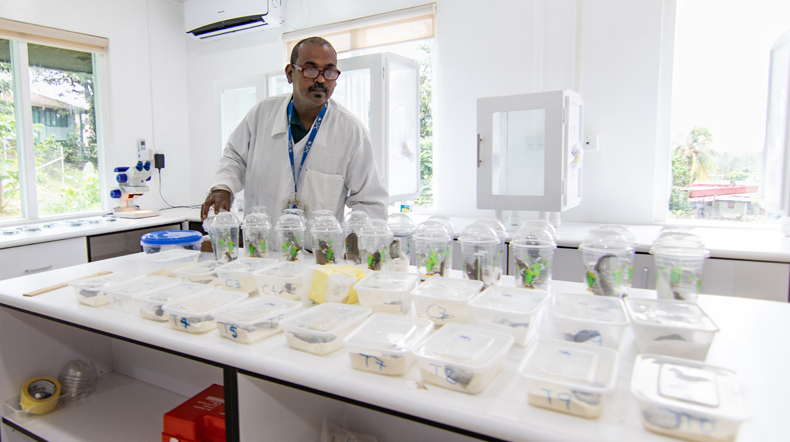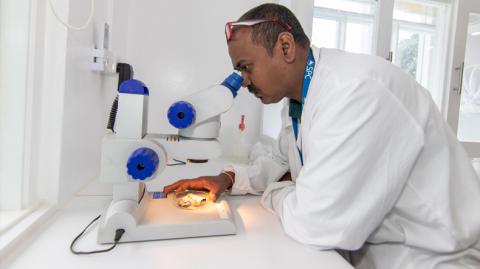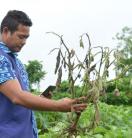New biosecurity lab boosts Pacific research capacity

A new plant health laboratory is supporting the Fijian agriculture sector to protect regional food security against the rising threat of pests and diseases.
Located within the Pacific Community’s (SPC) Narere campus, the new facility is the first of its kind for the region and was built with financial support from ACIAR.
Designed to bolster regional capacity, the plant health laboratory enables SPC scientists to study various pests and diseases requiring a high level of biosecurity containment, such as insects, fungi, viruses, and bacteria.
SPC Entomology Laboratory Technician, Nitesh Nand, said the lab is the first in the Pacific region to be classified at Biosecurity Containment Level 3 (BCL3) and will prove invaluable in developing controls for emerging biosecurity threats.
‘BCL3 classification is similar to the medical Biosafety Lab 3. The difference is in the context of the level of risk to plant or crop health, as opposed to human health,’ Mr Nand said.
‘A BCL3 laboratory typically includes work on microbes as well as biological control agents that are either indigenous or exotic. These can cause severe or potentially infectious pests and diseases when exposed to specific crops or plants.’
The Biosecurity Authority of Fiji independently classified the lab’s Biosecurity Containment Level following a recent assessment of the new facility, which has also been built to limit the disruption to research following natural disasters such as cyclones.
ACIAR Research Program Manager for Horticulture, Irene Kernot, said ACIAR is proud to support and enhance the Pacific’s research capacity.
‘The facility allows SPC to achieve plans of a regional centre of excellence in pest and disease diagnostics while supporting regional food security amid a fast-growing influence of climate change,’ Ms Kernot said.
‘Climate change is a major factor driving the rise in the spread of pests and diseases, along with increased global export trade. Changing weather patterns affects the survival rate and geographical distribution of pests; and the intensity, development and geographical distribution of diseases.'
‘Growing and expanding the ability of our partner countries in the Pacific to manage this growing biosecurity threat is crucial to ensuring regional food security,’ Ms Kernot said.
The construction of the lab is complete, and research has already commenced in the facility, with an official opening to occur later this year.
The facility was built as part of an ACIAR-funded project responding to emerging pest and disease threats to horticulture in the Pacific Islands.




